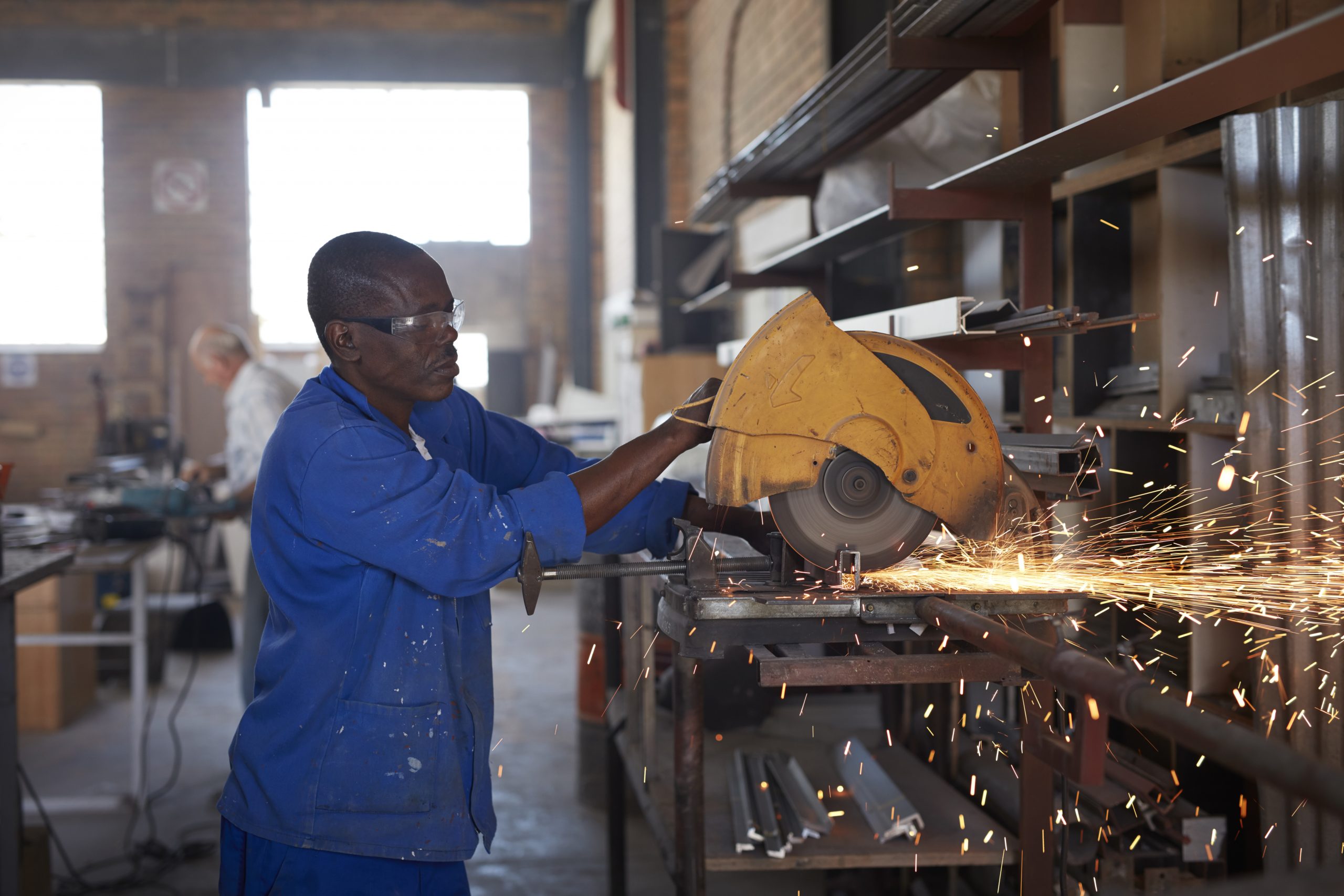African Union member states need to embrace the idea of industrialization if they wish to remain competitive within the global trade space. This is according to Wamkele Mene, Secretary General, African Continental Free Trade Area (AfCFTA).
According to Mene, the over dependence on export of the continent’s primary commodities as well as on external partners to come and invest in the continent has brought about the lack of competitiveness which needs to change.
“When you think about why Africa lacks competitiveness, it is because we have been fragmented leading to the continuous reliance on export of our raw materials which are processed abroad and re-exported to us, creating a value chain and employment generation for those countries,” Mr. Mene said.
He was speaking at the opening ceremony of the Ghana Trade Road Show organised by Afrexim Bank and Oakwood Green Africa, an African trade finance group and the AfCFTA Secretariat in Accra.
Themed, “Supporting the Africa Trade Agenda – Ensuring the Last Mile”, the event has attracted representatives from the business community, small and medium enterprises (SMEs) as well as exporters of handicraft products, financial institutions among others. It seeks to promote Afrexim mandate in Ghana by forging collaborations with the business community and the SME sectors to increase their competitiveness under the AfCFTA agreement.
Wamkele warned African nations against industrializing individually as this won’t serve an adequate purpose since the economies of the member states are small, and the fragmentations have not made it possible to achieve the objective of an integrated market.
“This is why the AfCFTA is so critical because, regardless of how competitive you are as a nation, the potential of a single country would not make the needed impact that is why we have to leverage on this market of 1.3 billion people if we are going to succeed,” he reiterated.
He noted that Ghana, South Africa and some other eight African countries between 2018 and 2019 were among the world’s fastest growing economies, an indication that the potential of the African continent to be globally competitive exists, but without an integrated single market, it cannot achieve the target of industrialization, job creation and global and regional competitiveness.
Comparably, he noted that value addition has been fundamentally lacking on the continent, necessitating the need to ensure an enhancement of processing capacity. Citing the Democratic Republic of Congo and the Zambia, which he said have copper in excess as examples, Wamkele pointed out that the lack of processing capacity has seen these two countries exporting them to Ukraine where it is processed leaving them to now import them for manufacturing.
“In 2019, Africa imported $16 billion worth of pharmaceutical products making it 15 million of jobs and our competitive capacity being exported to the rest of the world, but when you look at the raw materials for the manufacturing of pharmaceutical products, they are mainly agricultural base and these are abundant on our continent,” he affirmed.
Wamkele also noted that Africa a lot of inefficiencies along its trade corridors within the various regions on the continent which he stressed have eroded not only competitiveness in trade but has also continued to affect the ease of doing business in Africa.
“In West Africa for example, over 70 percent are over reliant on the various corridors, unfortunately, there are inefficiencies with transit of goods between Abidjan to Lagos or Ghana to Lagos taking between 10 to 15 days going through 37 check points, thus creating huge costs for business,” he lamented.
“In East Africa, you can move your goods from the Port of Mombasa to Kampala in three days which is a distance of 1,600 kilometres. What this means is that the East Africans have reduced the transit time over a 10 year period from 15 days to 3 days,” he added, while calling on member states with bureaucratic processes to reform their processes to enable more trade occur in the continent.

